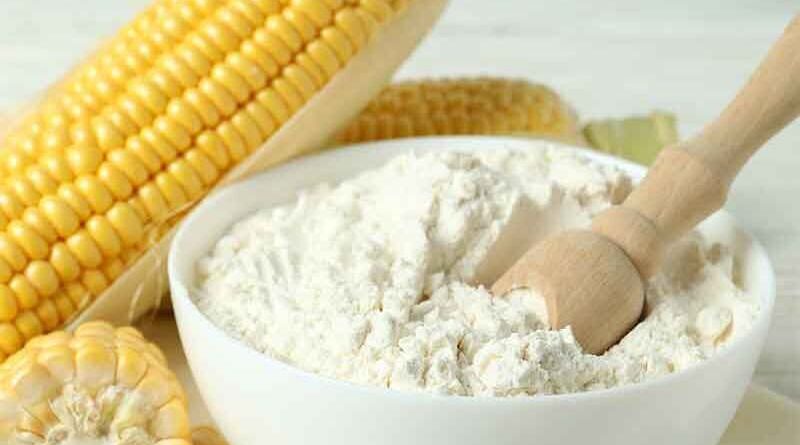Ultimate Guide to Health Benefits of Soluble Corn Fiber
Due to its extensive use in the food sector and possible health benefits, soluble corn fiber is becoming more and more popular. It has special qualities as a soluble dietary fiber made from corn that can promote digestive health and help control blood sugar. This page examines the soluble corn fiber’s nutritional qualities, health advantages, and potential drawbacks in addition to its manufacturing processes. Gaining knowledge about soluble maize fiber can help one appreciate its importance in contemporary diet habits as well as its role in enhancing general well-being.
Advantages of Soluble Corn Fiber for Health
Because it provides multiple health advantages, soluble maize fiber is a useful supplement to diets.
Digestive Health:
By encouraging the growth of good bacteria in the stomach, soluble maize fiber helps maintain regularity and enhances digestion.
Blood Sugar Management:
By delaying the digestion and absorption of carbs, it can help lower blood sugar levels, which may be advantageous for people who already have diabetes or are at risk.
Weight Control:
It being a low-calorie component, aids in weight control by encouraging satiety and lowering total caloric consumption.
Lowering Cholesterol:
Research indicates that soluble maize fiber may have a role in lowering cholesterol and promoting heart health.
Sources and Production of Soluble Corn Fiber
By a procedure known as enzymatic hydrolysis, maize starch is the main source of it. Here’s a quick rundown:
Soluble Corn Fiber Source:
Corn is a widely grown crop that provides the fiber that is soluble in corn. Enzymatic treatment is used to break down the starch molecules in corn starch into shorter chains of glucose units.
Soluble Corn Fiber Production Process:
The production involves several steps:
Enzymatic Hydrolysis:
Enzymes are added to corn starch to break it down into shorter glucose chains, mostly maltodextrins.
Filtration and Purification:
Soluble maize fiber is retained when the mixture is filtered to exclude any insoluble ingredients.
Types of Soluble Corn Fiber:
Depending on the particular enzymatic treatment applied, there are several varieties of it, each with differing levels of solubility and functioning.
The Nutritive Value of Soluble Corn Fiber
Because of its special nutritional qualities, soluble maize fiber is prized for its numerous health advantages.
Caloric Value:
Dietary fiber that is soluble in corn has a calorie content of roughly 2 calories per gram.
Digestibility:
The human body can partially digest it, causing the colon to ferment and create healthy short-chain fatty acids (SCFAs).
Fiber Content:
Based on a dry weight basis, it typically includes between 70 and 75 percent dietary fiber.
Glycemic Response:
Because of its low glycemic index, it doesn’t considerably increase blood sugar levels.
Corn Fiber Soluble and Digestive Health
By several methods, soluble maize fiber is essential for supporting digestive health.
Soluble Corn Fiber Prebiotic Effect:
It functions as a prebiotic fiber, specifically promoting the development and activity of lactobacilli and Bifidobacteria, two types of good bacteria, in the stomach.
Increased Bowel Regularity:
It helps to relieve constipation and encourage regular bowel movements by softening and boosting the volume of stool.
Decreased Risk of Digestive Disorders:
Soluble corn fiber taken regularly may lessen the chance of developing gastrointestinal conditions like diverticulosis and irritable bowel syndrome (IBS).
Corn Fiber Soluble and Blood Sugar Control
Better blood sugar control can be facilitated by soluble maize fiber, especially for those who are at risk for diabetes:
Glycemic Response:
Due to its low glycemic index, eating it does not result in a sharp rise in blood sugar levels.
Slow Digestion and Absorption:
Soluble maize fiber helps to normalize blood sugar levels by slowing down the digestion and absorption of carbs.
Insulin Sensitivity:
It may enhance insulin sensitivity, which is advantageous for the management of diabetes, according to some research.
Potential Side Effects and Precautions
Even though soluble maize fiber has several health advantages, it’s important to be aware of any possible risks and take the following precautions:
Gastrointestinal Discomfort:
Some people may experience bloating, gas, or diarrhea after consuming significant amounts of soluble maize fiber, particularly when they are first included in their diet.
Hydration:
To avoid constipation and support intestinal health, consume enough water when consuming it.
Individual Sensitivity:
Some persons may be more allergic or have stomach distress when exposed to soluble corn fiber.
Moderation:
To determine tolerance, it’s best to start with modest doses and progressively increase intake.
Uses of Soluble Corn Fiber in the Food Sector
Because of its nutritional and functional qualities, it is utilized extensively in the food sector for a variety of applications.
Texture Enhancement:
It can make baked foods, drinks, and dairy products more stable, have a better mouthfeel, and have a better texture.
Sugar Reduction:
By acting as a bulking agent and low-calorie sweetener, soluble maize fiber can help formulas utilize less sugar.
Fiber Enrichment:
Fiber enrichment is the process of adding extra fiber to food to boost its nutritious value.
Products for Health and Wellness:
Products for blood sugar regulation, weight control, and digestive health include it.
Conclusion
In conclusion, because of its wide application and possible health advantages, it is becoming more and more well-liked in the food industry. This soluble dietary fiber, which comes from maize, helps regulate blood sugar, supports weight control, and may even lower cholesterol. It also improves digestive health.
Comprehending its nutritional attributes and manufacturing methods emphasizes its significance in contemporary diets and its function in augmenting general health. For a wide range of food applications, it is a flexible and useful additive that enhances nutrition and enhances functionality.
You Can Read More About Corns
Unlocking Corn’s Surprising Secrets: Is Corn Healthy?
Corn Flakes Nutrition: What Makes it Your Perfect Morning Fuel?
